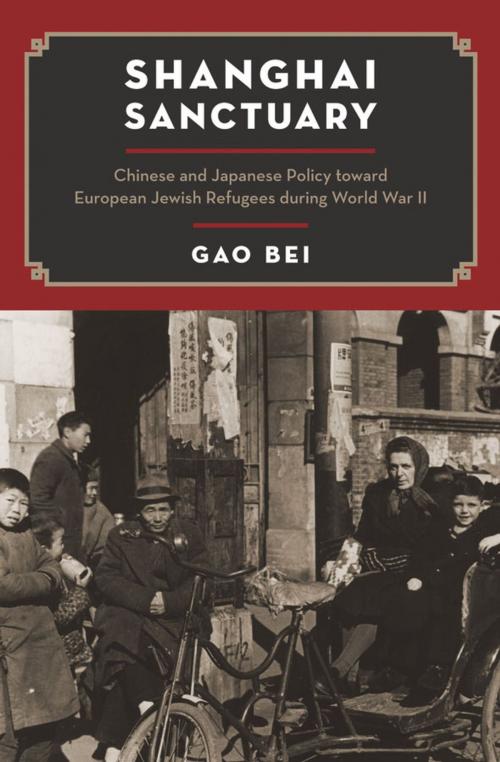Shanghai Sanctuary
Chinese and Japanese Policy toward European Jewish Refugees during World War II
Nonfiction, History, Western Europe, Asian, Asia, Military, World War II| Author: | Bei Gao | ISBN: | 9780199311545 |
| Publisher: | Oxford University Press | Publication: | January 29, 2013 |
| Imprint: | Oxford University Press | Language: | English |
| Author: | Bei Gao |
| ISBN: | 9780199311545 |
| Publisher: | Oxford University Press |
| Publication: | January 29, 2013 |
| Imprint: | Oxford University Press |
| Language: | English |
When the world closed its borders to desperate Jews fleeing Europe during World War II, Shanghai became an unexpected last haven for the refugees. An open port that could be entered without visas, this unique city under Western and Japanese control sheltered tens of thousands of Jews. Shanghai Sanctuary is the first major study to examine the Chinese Nationalist government's policy towards the "Jewish issue" as well as the most thorough analysis of how this issue played into Japanese diplomacy. Why did Shanghai's German-allied Japanese occupiers permit this influx of Jewish refugees? Gao illuminates how the refugees' position complicated the relationships between China, Japan, Germany, and the United States before and during World War II. She thereby reveals a great deal about the Great Powers' national priorities, their international agendas, and their perceptions of the global balance of power. Drawing from both Chinese and Japanese archival sources that no Western scholar has been able to fully use before, Gao tells a rich story about the politics and personalities that brought Jewish refugees into Shanghai. This story, far from being a mere sidebar to the history of modern China and Japan, captures a critical moment when opportunistic authorities in both countries used the incoming Jewish refugees as a tool to win international financial and political support in their war against one another. Shanghai Sanctuary underlines the extent of Holocaust's global repercussions. In the process, the book sheds new light on the intricacies of wartime diplomacy and the far-reaching human consequences of the twentieth century's most documented conflict.
When the world closed its borders to desperate Jews fleeing Europe during World War II, Shanghai became an unexpected last haven for the refugees. An open port that could be entered without visas, this unique city under Western and Japanese control sheltered tens of thousands of Jews. Shanghai Sanctuary is the first major study to examine the Chinese Nationalist government's policy towards the "Jewish issue" as well as the most thorough analysis of how this issue played into Japanese diplomacy. Why did Shanghai's German-allied Japanese occupiers permit this influx of Jewish refugees? Gao illuminates how the refugees' position complicated the relationships between China, Japan, Germany, and the United States before and during World War II. She thereby reveals a great deal about the Great Powers' national priorities, their international agendas, and their perceptions of the global balance of power. Drawing from both Chinese and Japanese archival sources that no Western scholar has been able to fully use before, Gao tells a rich story about the politics and personalities that brought Jewish refugees into Shanghai. This story, far from being a mere sidebar to the history of modern China and Japan, captures a critical moment when opportunistic authorities in both countries used the incoming Jewish refugees as a tool to win international financial and political support in their war against one another. Shanghai Sanctuary underlines the extent of Holocaust's global repercussions. In the process, the book sheds new light on the intricacies of wartime diplomacy and the far-reaching human consequences of the twentieth century's most documented conflict.















